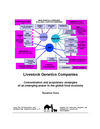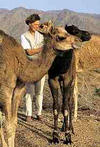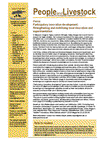Livestock industry study revised

A revised and updated version is now available of Susanne Gura’s groundbreaking study on “Livestock genetics companies: Concentration and proprietary strategies of an emerging power in the global food economy”.
This study describes how a few large multinational companies dominate the breeding of cattle, pigs and poultry, and the effects this has on the economy, ecology and society.
The revised study is available in English, German and (soon) Spanish.
Rolex features LPP’s work on conserving breeds

Rolex Awards for Enterprise has again featured the work of LPP founder Dr Ilse Köhler-Rollefson.
The Rolex Awards website describes how Ilse is campaigning to conserve livestock breeds, and the rights of livestock keepers to control their animal genetic resources.
Rolex quotes Ilse as saying that “if companies are allowed to control animal genetics… the result could be just a few varieties of livestock… being raised worldwide, instead of a huge range of varieties adapted to their environments and to the economic needs of those who raise them.”
“The only way to preserve them is to enable livestock-keepers to generate income, so that their way of life continues,” Ilse explains. “For the camels in Rajasthan, we have developed niche products, like camel milk ice cream, which is proving a success. We can thus help the herders and the camels to survive.”
Ilse was named an Associate Laureate by Rolex Awards for Enterprise in 2002.
People and Livestock newsletter focuses on innovations

The September 2007 issue of the People and Livestock newsletter focuses on participatory innovation development – an approach where scientists and development workers work together with farmers and livestock keepers to build on their indigenous knowledge, identify local innovations, and generate new ideas to improve their production and livelihoods.
Read online or download 75 kb, 8 pages
- Go to the previous page
- 1
- …
- 60
- 61
- 62
- 63
- 64
- 65
- 66
- …
- 83
- Go to the next page
